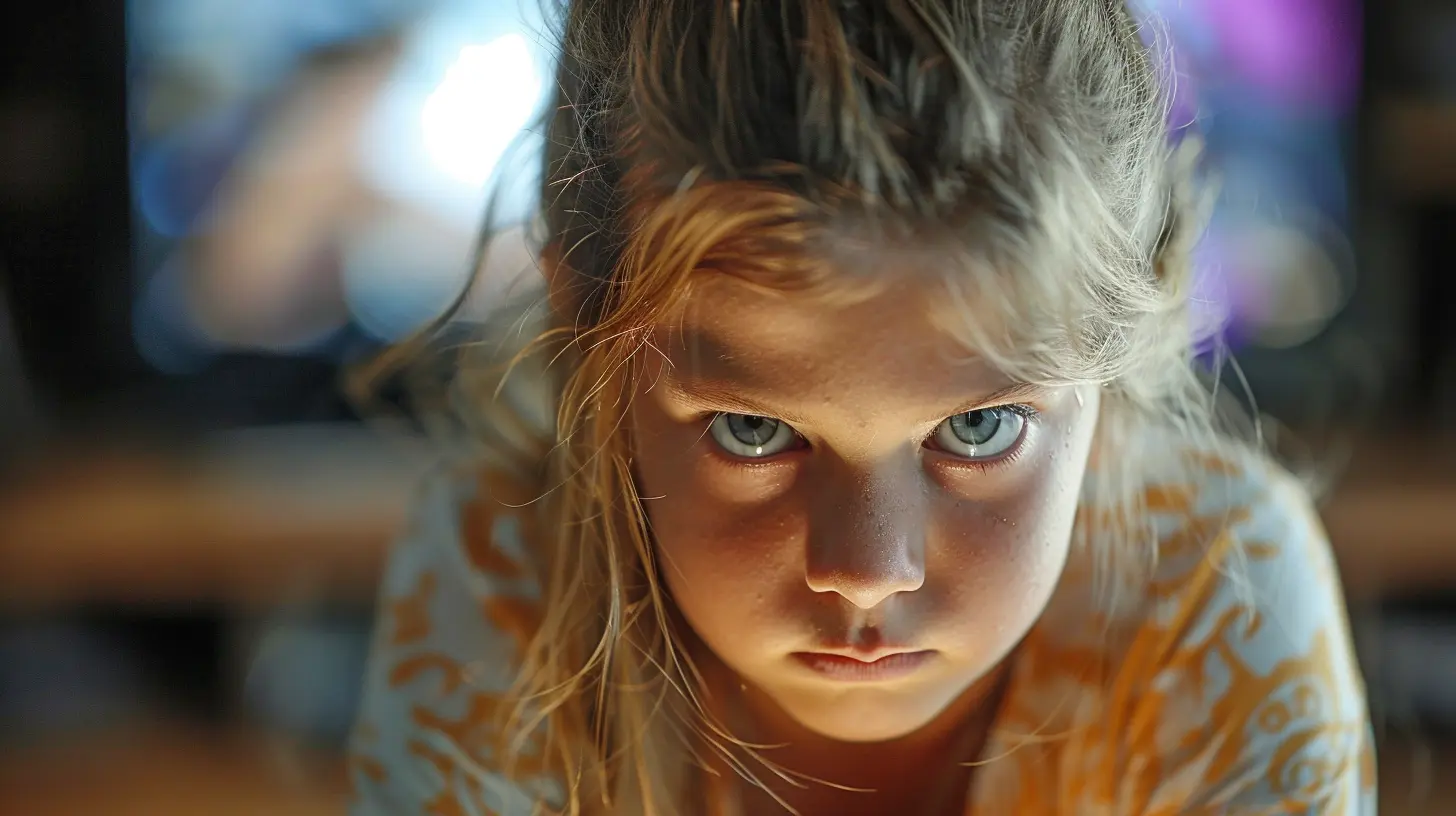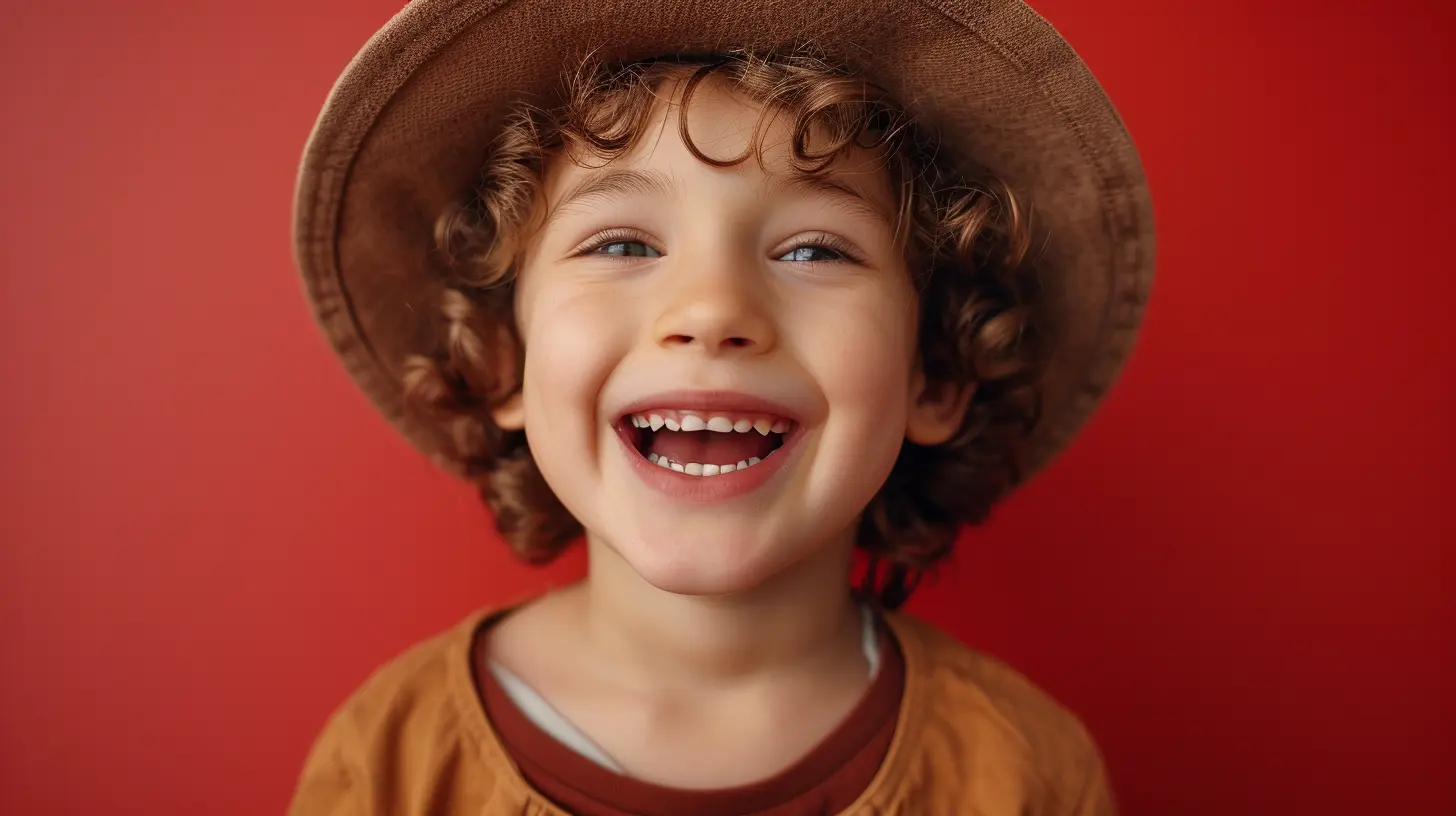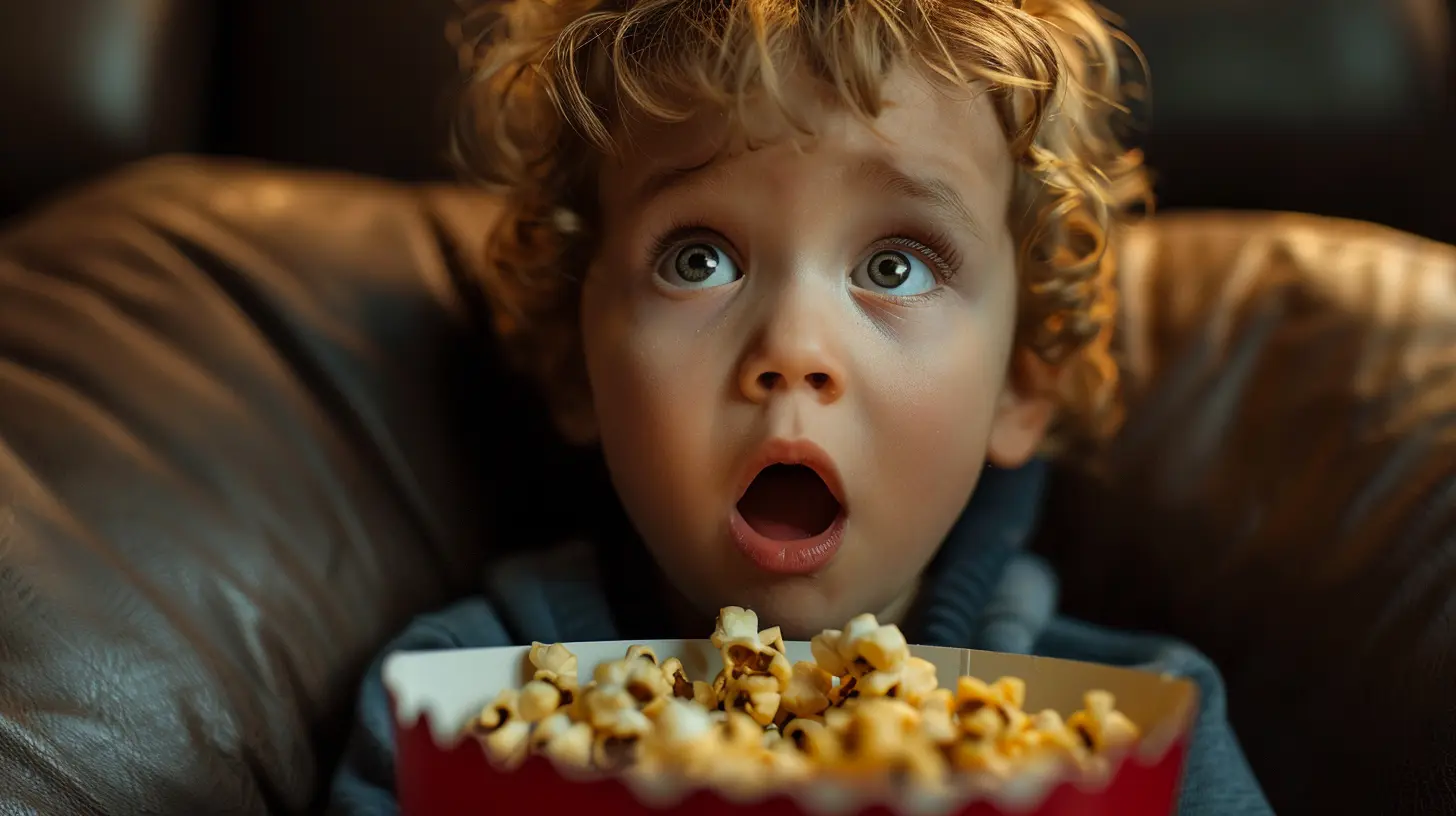Letting Your Kids Be Little Comedians (Even When You’re the Punchline)
22 December 2024
Parenting is no small feat. Between the mountains of laundry, late-night tantrums, and endless snack requests, there’s one unexpected curveball we sometimes face as parents—our kids turning into little comedians. And not just any comedians, but ones who seem to have a knack for making you their favorite target. It’s humbling, isn’t it? One day, you’re their superhero, and the next, you’re the punchline of their stand-up routine.
But hey, before you get defensive or start scheming your own zingers to throw back at them, let’s take a step back. Encouraging your kids to embrace humor, even at your expense, might just be one of the greatest gifts you can give them. Let’s dive into why letting your kids be little comedians (yes, even when you’re the butt of their jokes) might actually be a win-win for everyone.
Why Humor Is So Important for Kids
Let’s start by addressing the obvious question: why should we care if our kids are funny? Here’s why—humor isn’t just about getting laughs; it’s a skill, a tool, and a way for kids to navigate the world.Think about it. Humor teaches kids resilience. When they can laugh at themselves or find the funny in tough situations, they’re better equipped to handle life’s curveballs. It’s like giving them a secret superpower. And let’s not forget the social benefits! A good sense of humor can help kids build connections, make friends, and improve their communication skills.
And the kicker? Humor and creativity go hand in hand. When kids practice making jokes, they’re also flexing their imagination and problem-solving muscles. So yeah, your kid’s roast session about your outdated dance moves might sting, but it’s all in the name of personal growth.
The Benefits of Being Your Kids’ Comedy Muse
You might be thinking, “Sure, humor is great, but why do I have to be the target for it?” Fair question. Let’s talk about why being the punchline of your child’s jokes might not be as bad as it sounds.1. It Builds Trust and Comfort
Kids feel safe making jokes with people they trust. If your little comedian is joking about your love of 90s rom-coms or your inability to assemble IKEA furniture, it’s a sign they feel close enough to you to test the waters. Their jokes are their way of making sense of the world and their relationship with you.2. It Shows Vulnerability in a Healthy Way
When you laugh along with their jokes—even if they’re poking fun at you—you’re modeling how to handle teasing and criticism with grace. You’re teaching them that it’s okay to be vulnerable and that not everything needs to be taken so seriously. That’s a lesson that will stick with them well into adulthood.3. It Strengthens Your Bond
Shared laughter is one of the quickest ways to deepen relationships. When you laugh together (even at yourself), it creates a connection. Those inside jokes about your messy bun or overuse of “dad jokes” become part of your family’s unique tapestry. It’s the kind of stuff your kids will remember fondly when they’re older.
How to Handle Being the Punchline (Without Losing Your Cool)
Okay, we’ve established why it’s a good thing to let your kids flex their comedic muscles, even at your expense. But let’s be real—some jokes can hit a little too close to home. How do you handle it without stomping on their budding sense of humor?1. Know the Line Between Playful and Hurtful
Kids are still learning boundaries, so it’s normal for them to cross the line occasionally. If a joke feels more like an insult, take a moment to gently explain why it’s not okay. For example, “Hey, I know you were trying to be funny, but calling me lazy really hurt my feelings. Let’s work on jokes that make everyone feel good, okay?”2. Don’t Take It Personally
Remember, kids don’t see the world the way adults do. When they joke about your “weird” singing voice or your habit of misplacing your keys, they’re not trying to hurt you—they’re processing the world around them in their own quirky way. Shake it off and laugh along with them. (Or, you know, maybe practice those high notes in the shower.)3. Laugh at Yourself
Your kids are watching you to learn how to handle life’s awkward moments. When you laugh at yourself, you’re showing them that it’s okay to be imperfect. And let’s be honest, no one’s perfect anyway—so why not own it?4. Encourage Positive Humor
Guide your kids toward jokes and humor that are light-hearted and positive. You can even make it a game by challenging them to come up with jokes that make everyone laugh (instead of just roasting mom or dad).
Teaching Respectful Humor
While it’s great to let your kids joke around, it’s important they learn the difference between humor that’s playful and humor that’s mean-spirited. They’re not born knowing this stuff—it’s up to you to help them figure it out.1. Set Clear Boundaries
Let your kids know that making fun of someone’s appearance, abilities, or feelings is off-limits. It’s okay for them to tease you about your love of cheesy reality TV shows, but jokes that cross into personal attacks need to be nipped in the bud.2. Use Teachable Moments
If you hear a joke that feels a little off, use it as an opportunity to teach empathy. You could say something like, “That joke sounded a little unkind. Can you think of a way to make it funny and nice?”3. Model the Behavior You Want to See
If you don’t want your kids hurling sarcastic zingers at everyone they meet, make sure you’re not doing it yourself. Kids are little sponges—they’re going to mimic what they see at home.The Power of Shared Humor
At the end of the day, humor is one of the most special gifts you can share with your kids. It creates a sense of joy, belonging, and connection that will stick with them for a lifetime. So the next time your little stand-up star takes the stage and makes you their favorite subject, don’t roll your eyes or brush them off. Instead, lean in. Laugh with them. Join the act.Parenting is hard enough—why not enjoy the lighter moments? After all, being the punchline isn’t so bad when the giggles and smiles that follow are totally worth it.
Wrapping It Up: A Dose of Laughter Goes a Long Way
No, you don’t have to sign up for a lifetime of being roasted on a daily basis. But letting your kids explore humor, even when it involves a little good-natured teasing, is a gift. You’re teaching them resilience, creativity, and how to connect with others through laughter. So, the next time your kid calls you out on your obsession with labeling everything in the pantry, just laugh. And maybe, just maybe, come up with a witty comeback. That’s what parenting (and comedy) is all about—rolling with the punches and finding the humor in everyday life.all images in this post were generated using AI tools
Category:
Parenting With HumorAuthor:

Zelda Gill
Discussion
rate this article
14 comments
Hunter Meyers
This article beautifully highlights the joy of humor in parenting. Embracing our kids' comedic perspectives not only strengthens bonds but also teaches resilience. Let's celebrate the laughter and cherish these playful moments together!
February 7, 2025 at 5:21 AM

Zelda Gill
Thank you! I'm glad you resonated with the joy and resilience that humor brings to parenting. Celebrating those playful moments truly enriches our connections with our kids!
Tempra McGinnis
Embracing your kids' humor is a beautiful journey! Allowing them to express themselves, even at your expense, fosters creativity and connection. Laughing together strengthens bonds and creates joyful memories. Celebrate their comedy—it's a gift to cherish!
February 1, 2025 at 5:44 PM

Zelda Gill
Thank you! Embracing their humor truly enriches our connection and creates lasting memories. Celebrating their creativity is a joy!
Ian Kane
Embrace the laughs; parenting is the ultimate comedy show!
January 28, 2025 at 5:01 PM

Zelda Gill
Absolutely! Finding humor in parenting makes the journey so much more enjoyable. Laughter is truly the best medicine!
Emma Edwards
Embrace the chaos! If your kids are cracking jokes at your expense, it just means you’re raising future stand-up legends. Own the punchline — laughter now means less therapy later. Bring on the giggles!
January 24, 2025 at 3:52 AM

Zelda Gill
Absolutely! Embracing their humor fosters creativity and resilience—laughter truly is the best medicine!
Pearl Roth
Absolutely loved this article! Embracing our kids' humor not only brings joy but also creates unforgettable memories. It's heartwarming to be the punchline sometimes—it shows how much fun parenting can be! Keep laughing and let the giggles flow! 🌟😂
January 20, 2025 at 4:39 AM

Zelda Gill
Thank you so much! I'm thrilled you enjoyed it! Embracing their humor truly makes parenting memorable and joyful. Keep laughing! 😊✨
Zinna Mercado
Embracing your kids' humor can foster creativity and resilience. It's a wonderful way to bond, even if it means being the occasional punchline in their jokes!
January 15, 2025 at 5:45 AM

Zelda Gill
Absolutely! Embracing their humor not only strengthens your bond but also nurtures their creativity. Being a punchline can make for some of the best memories!
Zorina McDowell
What a refreshing perspective! It’s intriguing to think of humor as a bonding tool. How do you handle the jokes that hit a little too close to home?
January 9, 2025 at 5:27 PM

Zelda Gill
Thank you! It's all about balance—acknowledging the sensitivity of certain topics while encouraging laughter. Open communication helps ensure that everyone feels comfortable and included.
Rosanna Curry
Absolutely love this! Embracing our kids' humor, even when we're the butt of the joke, creates unforgettable memories. Plus, laughter truly is the best parenting tool. Cheers to more giggles and happy chaos!
January 7, 2025 at 4:23 AM

Zelda Gill
Thank you! Embracing their humor really does make for amazing memories and stronger bonds. Cheers to more laughter!
Esther Roberson
Parenting is the ultimate comedy act, where our kids steal the spotlight while we play the unwitting punchline. Embracing their humor not only fosters creativity but reminds us to laugh at ourselves. After all, the best laughter comes from those unexpected moments when we find joy in being the butt of the joke!
January 3, 2025 at 3:41 PM

Zelda Gill
Absolutely! Embracing our kids' humor not only nurtures their creativity but also helps us find joy in life's quirks. A little self-deprecation goes a long way in making unforgettable memories together!
Lorelei McAnally
“Ah, yes! Nothing says ‘great parenting’ like being the star of your kid’s stand-up routine!”
December 29, 2024 at 4:56 PM

Zelda Gill
Humor is a key part of parenting—laughing together creates lasting bonds!
Maria Newton
Embracing your child's comedic antics, even when you're the target, fosters a joyful environment where laughter thrives. This dynamic not only strengthens bonds but also nurtures creativity and resilience. Encouraging humor in parenting can transform challenges into cherished memories and invaluable life lessons.
December 24, 2024 at 5:13 AM

Zelda Gill
Absolutely! Embracing humor in parenting not only creates lasting memories but also strengthens our connections with our kids. Laughter truly is a powerful tool for resilience and creativity.
Garrett Spencer
Embrace their humor; it fosters creativity and strengthens your parent-child bond significantly.
December 23, 2024 at 4:51 AM

Zelda Gill
Absolutely! Embracing humor in parenting not only enhances creativity but also deepens the connection with your child. It's all part of the joy of parenting!
Quill McKale
Embracing your child's humor, even at your own expense, fosters creativity and confidence. Laughing together not only strengthens your bond but also teaches valuable lessons about resilience and self-acceptance. Celebrate those giggles—they're the heart of childhood!
December 22, 2024 at 4:50 PM

Zelda Gill
Absolutely! Embracing your child's humor not only nurtures creativity and confidence but also deepens your bond and teaches important life lessons. Those shared laughs are truly what childhood is all about!
Drift Dorsey
Embrace the giggles! Every punchline adds joy to parenting—let their humor shine, you’ll treasure these moments!
December 22, 2024 at 3:47 AM

Zelda Gill
Absolutely! Cherishing their humor makes parenting even more joyful and memorable.
MORE POSTS

Self-Care Strategies Every Working Mom Needs to Know

Raising a Strong-Willed Child: How Parenting Style Affects Outcomes

How to Teach Your Child Empathy to Prevent Bullying

Creating Boundaries Between Parenting and Personal Space

Signs Your Teen Needs More Independence: How to Handle It

Using Positive Language to Encourage Cooperation

How to Make Grocery Shopping with a Toddler Easier

How Journaling Can Become Your Self-Care Outlet

What to Do When Your Child Feels Unsafe at School